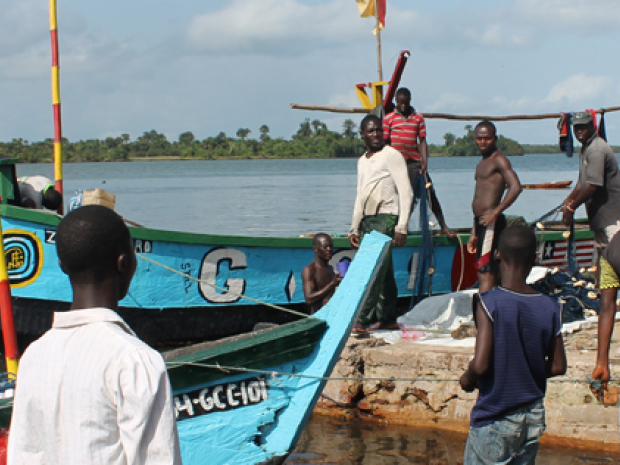Two examples of how European Commission funding is promoting sustainable development
Discussion details

Nairobi, 29 August 2016: The European Union is a major funder of UNEP’s work, and the European Commission (EC) funds specific projects.
In this article we look at two UN Environment (UNEP) ecosystems-related projects funded exclusively by the EC – one on the value of ecosystems, and one relating toThe Great Apes Survival Partnership (GRASP).
In 2012, the EC provided €4 million to allow Bhutan, Ecuador, Liberia, Philippines and Tanzania to do an Economics of Ecosystems and Biodiversity (TEEB) country study. This was the start of a project titled Reflecting the Value of Ecosystems and Biodiversity in Policymaking, which will run up to June 2017. Under the project, UNEP is supporting national and local capacity in these countries to produce assessments of ecosystem services, as well as guidance on how to include the recommendations in policymaking.
TEEB is a global initiative focused on “making nature’s values visible”. Its principal objective is to mainstream the values of biodiversity and ecosystem services into decision-making at all levels. It aims to achieve this by following a structured approach to valuation that helps decision-makers recognize the wide range of benefits provided by ecosystems and biodiversity, demonstrate their value in economic terms and, where appropriate, capture those values in decision-making.
A TEEB Country Study identifies the ecosystem services vital to meeting the country’s policy priorities and makes recommendations on how these services can be integrated into policies. These recommendations can include policies for poverty alleviation, subsidy reform, land use management, protected area management, securing livelihoods, investment in natural infrastructure restoration, and national accounting (including natural capital accounting).
Bhutan
TEEB Bhutan will inform the implementation of the Sustainable Hydropower Development Policy of 2008 and the Alternative Renewable Energy Policy of 2013, both of which call for a diversification of Bhutan’s energy sources. The TEEB study assesses changes in ecosystem services provisioning under hydropower development, with a focus on watershed services.
Tanzania
TEEB Tanzania will inform land use policies in the Rufiji River Basin. Many agriculture and water projects are planned in the basin as part of the government’s Big Results Now (BRN) Initiative. At the same time, there are competing water and land uses in the basin: activities such as sugarcane farming, planned dam construction for irrigation, and pastoral livestock systems make it a challenge to sustainably manage the watershed. TEEB will examine land use trade-offs in the basin and conduct scenario analyses to inform policies for prudent basin-wide management. Read More
To find more country specific project information, read about Ecuador's biodiversity conservation, coastal mangrove studies in Liberia or land reclamation plans of Philippine's Manila Bay.
GRASP
The Great Apes Survival Partnership implemented the European Commission-funded project ($2.6 million) titled “Preservation of forest resources and improved livelihoods of forest peoples through conservation of great apes as flagship species” between 2005 and 2009.
Flagship projects which targeted local communities around protected areas were successfully undertaken in Cameroon, the Democratic Republic (DR) of Congo, Côte d'Ivoire, and Indonesia. These projects benefited local communities by promoting their engagement and support for the sustainable use of forest resources and empowering them to combat the threat of illegal logging in forested areas within their localities. Through these activities and pro-poor strategies GRASP provided effective models for great ape conservation while promoting government commitment to conservation, and raising awareness of relevant conservation issues and potential solutions in the international arena.
The grant was also used to fund the 1st GRASP Council and intergovernmental meeting in Kinshasa, DR Congo, which led to the formalization of GRASP and the approval of the “Global Strategy for the Survival of Great Apes and their Habitats” and the “The Function and Rules of GRASP”.
“We wish to thank the European Commission for its financial support during the project implementation period, which played such an important role in developing community conservation efforts in Africa and Asia. We hope that this initial engagement with the European Commission [EC] has presented an opportunity for future collaboration,” says GRASP Project Manager Johannes Refisch.
For more information about these projects, click here.
Log in with your EU Login account to post or comment on the platform.